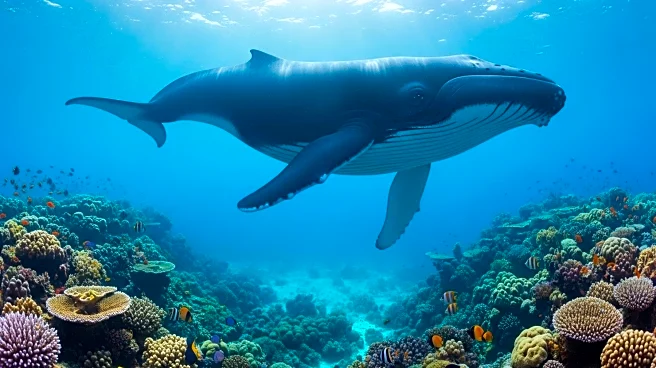What is the story about?
What's Happening?
A multinational treaty aimed at protecting the world's oceans is set to become law in January 2026, following the ratification by Morocco and Sierra Leone. The treaty seeks to safeguard marine ecosystems in international waters, which are vital for oxygen production and climate regulation. It establishes binding rules for conserving marine biodiversity and addresses challenges such as pollution, overfishing, and deep-sea mining. The treaty also includes provisions for sharing the benefits of marine genetic resources, a contentious issue during negotiations.
Why It's Important?
The enactment of this treaty marks a significant step towards global ocean conservation, addressing critical environmental challenges. Protecting marine ecosystems is essential for maintaining biodiversity, supporting climate regulation, and ensuring the sustainability of ocean resources. The treaty's implementation will require collaboration among various regional and global organizations, highlighting the complexity of managing international waters. The agreement also addresses equity concerns by establishing benefit-sharing mechanisms for marine genetic resources, which could have significant implications for developing countries and industries reliant on these resources.
What's Next?
The treaty will take effect in 120 days, with the first protected areas expected to be established by 2028 or 2029. A decision-making body will work with existing organizations to implement the treaty's provisions and address challenges such as deep-sea mining. Efforts to achieve global ratification will continue, with conservationists urging more countries to join the treaty. The success of this initiative will depend on the cooperation of major maritime and industrial powers, as well as the ability to balance environmental protection with economic interests.

















